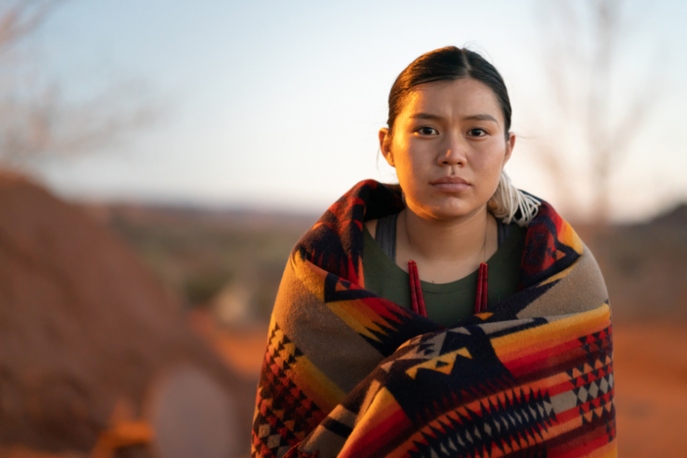Photo credit: THEPALMER
For many, Thanksgiving is a time for families to gather and be grateful. However, it’s important to remember that the holiday also represents a painful history for indigenous communities in the United States. With the holiday fast approaching, it’s important to to acknowledge the cultural trauma associated with Thanksgiving and how that history informs the modern-day experience of Native American communities in the U.S. today.
The myth of the Thanksgiving story is often perpetuated from a young age in American schools. Many children grew up reenacting the feast, during which pilgrims and Native Americans broke bread and coexisted peacefully. Smithsonian Magazine pushes back on that harmful narrative and details the true series of events associated with the English arrival in Plymouth: colonial land expansion, exploitation of Wampanoag Indian resources and eventually, a war. For the Wampanoag people, this is a period associated with deep mourning – not the joyful joining of communities that we so often portray it as.
Since 1970, the United American Indians of New England have observed a National Day of Mourning on Thanksgiving day, gathering at Cole’s Hill in Plymouth to honor Indigenous ancestors and Native resilience, but also to protest the racism and oppression that Indigenous people still face today across the globe. While the event began as a look back on the history of Thanksgiving, it has morphed into a venue for commentary on the various issues facing the Indigenous community today like the climate crisis, pipeline building on Native lands, and the Land Back movement. Outside of events like this, there are still many issues experienced by Native Americans historically and contemporarily that everyone should take the time to learn about including the consequences of Native American residential schools, the gross lack of research pertaining to crimes against Native Americans, and the increased risk of sex trafficking for indigenous women and girls.
Despite the painful history, Thanksgiving represents an opportunity for community to many Indigenous people. Some organizations that serve Native American communities use the day as an opportunity to come together in prayer and remembrance of past atrocities against their ancestors. The National Museum of the American Indian provides resources on how to rethink Thanksgiving celebrations with cultural sensitivity top of mind.
While Thanksgiving is a painful experience for Native American and Indigenous communities, those communities are not monoliths. While to many Thanksgiving represents spending time with family, that is not the case for all communities. Give space for a variety of perspectives on the Thanksgiving holiday, and acknowledge that for some, feelings of gratefulness might be hard to come by.
RALIANCE is a trusted adviser for organizations committed to building cultures that are safe, equitable, and respectful. RALIANCE offers unparalleled expertise in serving survivors of sexual harassment, misconduct, and abuse which drives our mission to help organizations across sectors create inclusive environments for all. For more information, please visit www.RALIANCE.org.

